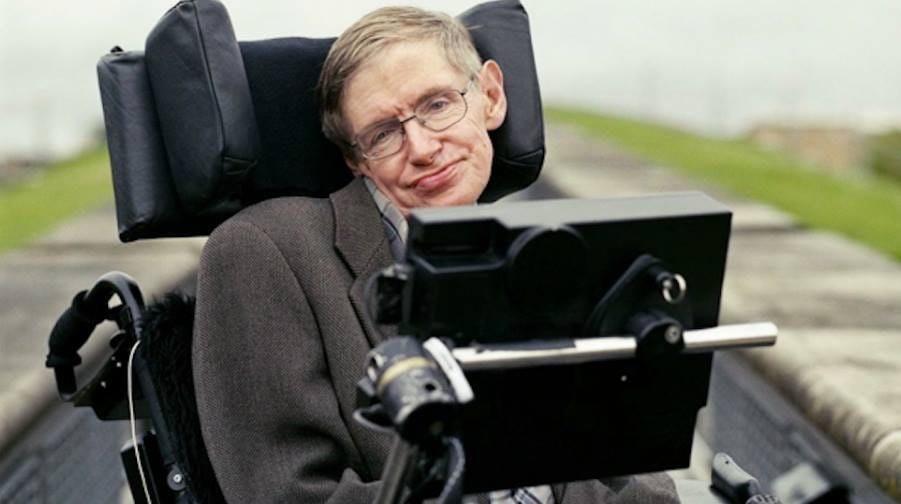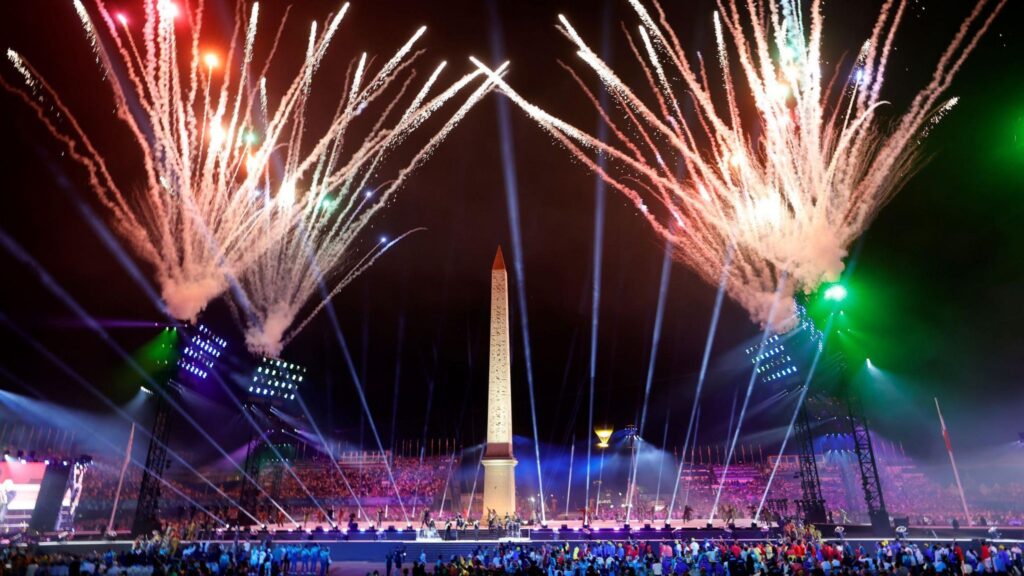Superhuman athletes have arrived in the French capital for the Paris 2024 Paralympic Games, a revolutionary sporting event about life, death, survival & ‘Murder Ball.’
August 29, 2024
As the Paralympics get under way in Paris, Michael Pirrie explains why the world’s third biggest sporting event is also a global movement that transcends sport
For those who thought they had witnessed – or missed – the most exciting, thrilling and joyful experiences that sport could offer at the recent Olympic Games, the message on billboards around Paris was to keep watching as “the Game is not over.”
It’s a brave, audacious thing to follow in the footsteps of Olympic athletes and the world’s biggest and most watched sporting event, especially one so recent and so successful as the Paris Olympic Games.
But that’s just what’s happening in the French capital. The Paralympic Games is underway. Just two weeks after the Olympics.
Paralympians are brave and audacious.
They came in their thousands, from more than 160 nations, for the opening ceremony on the Champs-Elysees, one of the world’s most beautiful avenues, which connects, appropriately, to the Arc de Triomphe, as Paris celebrated the triumphant arrival of a new intake of sporting champions in style
This time, on a perfect photoshopped Paris evening, the teams floated down the iconic avenue on adrenaline, hope and national expectations, avoiding the rain that drenched the boats and athletes that floated down the Siene in the Olympic opener.
The Paralympic Games, which now follows the Olympic Games in each new host city, did not exist the last time the Olympic Games were held in Paris 100 years ago.
The Paralympic event, which has evolved into a global sporting and social movement, found a kindred culture and spirit of support for the Games in Paris as thousands turned out for the opening in the streets of the French capital, synonymous with the fight for human and civil rights and liberties.
“Welcome to the country of love and revolution,” said Tony Estanguet, president of the Paris 2024 organising committee.
“This is the start of the most beautiful of revolutions, the Paralympic revolution,” he said to crowds of spectators cheering on the visiting teams as French President Macron formally opened the Games.
The Paralympic athletes are now making their way into some of the most beautiful venues in the world, recently vacated by Olympians, into Stade de France for Para athletics and other iconic settings including the Eiffel Tower stadium, converted into a field for blind football from the Olympic beach volleyball court.
A GAMES REVOLUTION IN SPORT & SOCIETY
But this is not a follow up or add on to the Olympic Games.
In a fractured world that is politically, socially, and economically divided and attention exhausted, the Paralympians are stepping out of the shadows of their Olympic counterparts with jaw dropping, uplifting, and soul stirring displays of sport.
The Paralympic Games is about much more than sport, reflecting the beauty, suffering and survival that sport can embody.
The Paralympians are making their own statements in Paris about the world we live in and what is possible in life and in sport.
While some Paralympians might die younger and earlier in their careers, the athletes have blazed comet-like trails across the sporting universe.
Paralympic athletes have defied society’s conventions and expectations around disability with performances that often transcend Olympic outcomes, surpassing customary thinking about what is possible in the aftermath of some of the most crippling injuries and conditions that can befall the human body.
Advances in medicine, artificial body parts and adaptable sporting infrastructure and equipment, combined with resilience and creativity of traumatic injury and disability survivors have produced a new global sporting and social inclusivity movement spanning the full spectrum of human experience and emotion.
Paralympic performances, like the athletes themselves, may exceed what many elite, able bodied athletes might struggle to achieve if confronted with similar adversity.
There are no sports seemingly out of bounds nor beyond the reach or imagination of Paralympic athletes, despite often catastrophic injury or circumstances.
These include canoeing, archery, athletics, and road cycling, to equestrian, rowing, powerlifting, swimming, and many others including wheelchair rugby, involving such fierce rivalry, collisions and crashes it was initially known as murderball.
The 100 metres sprint will be the fastest tango in Paris, with blade runners likely to fly down the fast Stade de France track in record time, below the current amazing 10.53 seconds benchmark for a single or double leg amputee athlete.
HAVEN SENT
The Paralympians are extraordinary athletes who have overcome almost seemingly insurmountable odds – from the cruel genetic lottery in life to the randomness of time, places and people involved in life altering accidents and incidents.
Let me tell you one of the most remarkable, one of the most heart breaking, and one of the most inspiring stories and athletes you may ever come to know about: her name is Haven Shepherd and she’s a swimmer on the American Paralympic team in Paris
Haven was born in Vietnam and adopted as a double amputee by an American family when she was 20-months old after losing her lower legs when a bomb was detonated by her birth parents trying to commit a family murder/suicide.
Haven’s biological parents died in the explosion but she survived with horrific leg injuries. Her grand-parents were so poor they asked families of other patients at the hospital to help pay the medical bills.
Haven, who developed an affinity with water and swimming after her new parents put her in a pool as a young child, will compete in swimming at her second Paralympic Games.
The young woman, who is not meant to be alive, is also a successful motivational speaker, model, brand ambassador and a dedicated advocate for people with disabilities.
“Definitely going through an amputation or just growing up without limbs in general, it makes you grow up really fast,” Haven said in a recent interview.
“You need to choose what you want the world to be to you. Is it going to be somewhere where its not safe and you never leave your house and you don’t want people to look at you? Or do you want the world to know that hey, we exist.”
“I’ve got to live this amazing life,” said the athlete who was supposed to be dead.
“I’m here at the Paralympics. I got to have an amazing childhood. The very first time I ever smiled when I first got adopted was when my parents put me in the swimming pool. I love how it comes the full circle”
Like Olympic athletes, the Paralympic athletes are among the best in the world at what they do.
Haven’s journey from adoption to international athlete revived memories of the swimmer who won Canada’s first gold medal at the Tokyo Olympics, defeating a swimmer from China, the birth country that had abandoned her as a baby under its former controversial one child policy and later adopted by a Canadian couple.
The stories and the achievements of athletes in Paris like Haven are truly extraordinary.
They include a freestyle swimmer and former cyclist who almost died eight times while in intensive care after a near fatal accident while triathlon training; a table tennis player who lost his right arm after being mauled as a child by a bear at a zoo in China when he tried to pat the animal though a gap in the enclosure; and an athlete, who, due to a hormone abnormality, will compete in Iran’s sitting volleyball team as the world’s second tallest living man at 246 centimetres.
Like the Olympics, the Paralympic Games reflects much about the human condition as well as the condition of the planet, with a growing number of athletes competing after sustaining horrific injuries in a growing number of combat zones.
The involvement of war damaged competitors reflects the historical origins of Paralympic sport in England as therapy for injured soldiers returning from the second world war.
SPORT’S UNCONQUERED SPIRIT
The Paralympic Games also highlights the important role sport can play in the recovery of war disabled veterans while bringing the international community together in a spirit of peace.
These are the twin themes of Prince Harry’s widely acclaimed Invictus Games, which involves participants who will also feature at the Paralympic Games.
The Invictus and Paralympic Games have helped to redefine the role and relevance of sport in positive and life affirming ways in this prolonged era of conflict, terrorism, and institutional failure.
Despite suffering horrific war-related injuries and setbacks such as lost limbs, brain damage, depression and post traumatic stress, Invictus and Paralympic participants have found in sport the motivation to persevere, overcome, recover, to conquer and to carry on.
“I don’t think anything could be more inspiring than seeing a guy who lay bleeding to death in a ditch in Afghanistan now running 100 metres in Paralympic time,” said Royal Marine Andy Grant, an original Team GB Invictus Games participant.
SPORT’S NEW AGE OF ENLIGHTENMENT
CONCLUSION
The Paralympic Games, like the athletes, have defied and reshaped commercial and social expectations surrounding sport because they embody the essence of sport and the human spirit at the heart of sport, which connects audiences and communities around the world to all great sporting events and endeavours.
The Paralympians epitomise the power of the human spirit to strive to overcome and to survive even the deepest adversity and afflictions like actors Michael J Fox and Christoper Reeve, singer Andrea Bocelli, boxer Muhammad Ali, and many others.
While addressing the Opening Ceremony of the London 2012 Paralympic Games, the acclaimed late British physicist, Stephen Hawking, said competition was “all about transforming our perception of the world.”

In calling for a new age of enlightenment, Hawking implored audiences to “look up at the stars and not down at your feet.”
“We are all different, there is no such thing as a standard or run of the mill human being, but we share the same human spirit,” said Hawking, a brilliant scientist who struggled with a crippling brain disease.
That spirit will be luminated brightly in Paris by the Paralympians as a beacon of hope to a world in crisis during the Games.
Michael Pirrie is an international communications strategy advisor who has worked in senior roles on several major international events, including the London 2012 Olympic and Paralmypic Games and Invictus Games.


